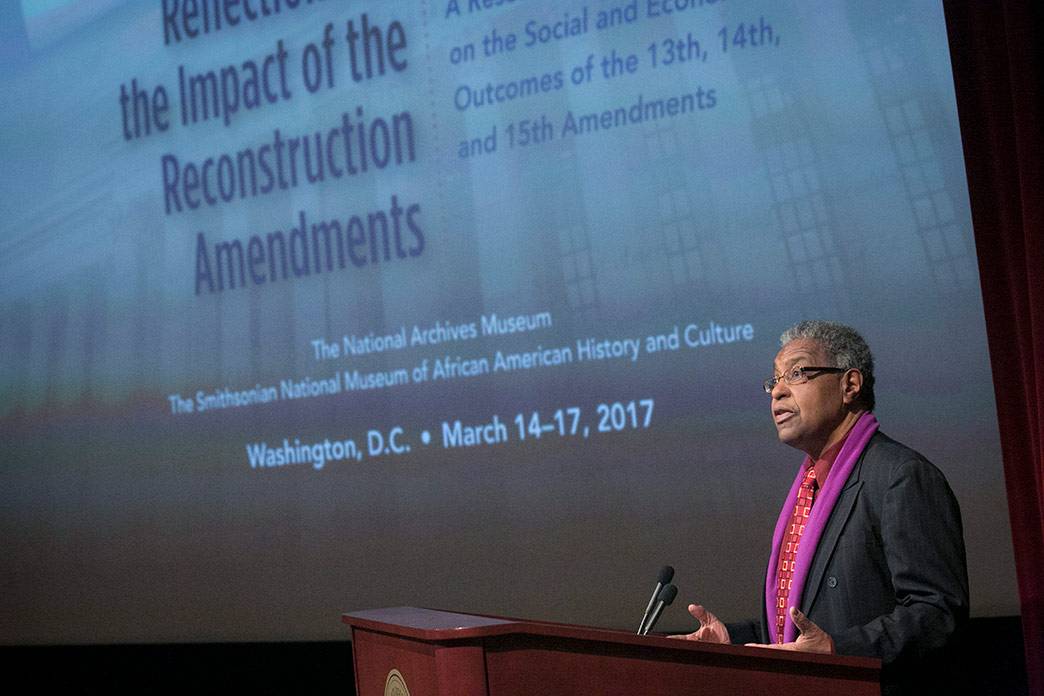At DC Landmark Museums, Cook Center Holds Conference on the Legacy of the Reconstruction Amendments

Meeting in the extraordinary collections of the National Archives Museum and the new Smithsonian National Museum of African American History and Culture, Duke’s Samuel DuBois Cook Center on Social Equity convened a three-day research symposium on “Reflections on the Impact of the Reconstruction Amendments” March 15-17.
Among the speakers were David Ferriero, former Duke university librarian and current United States archivist, academics and administrators from various institutions, Duke students and faculty members. The event included a screening of 13th, a documentary from Ava DuVernay on the 13th Amendment.
Congressman G.K. Butterfield (D-NC) welcomed participants, telling the, “Emancipation Proclamation and 13th Amendment signaled the beginning of a journey toward freedom for former slaves and beginning of the Reconstruction Era.”
He added that the Reconstruction Amendments have “had long-term consequences that continue to play a key role in America today.” Butterfield thanked the Cooke Center for their work and said the center “plays a role in shining light on Inequities in our society. It plays an important role in our conversations today.”
In his lecture on “The State of Black America 150 Years After Emancipation,” Cook Center Director William A. Darity Jr. framed the conversation as a national one for the more than 100 attendees. “The unjust treatment of blacks is a pattern of unjust treatment, is a national problem and has always been a national problem, not just the American South,” Darity said.
In a panel discussion on the 13th Amendment, Duke Associate Professor of history and African & African American Studies Thavolia Glymph framed the broader discussion by stating, “Race does all kinds of work. It is very powerful and we need think about it in that context.”
On that same panel, Duke Ph.D. student Ajenai Clemmons addressed potential policy solutions to be confronted today as part of the legacy of the Reconstruction Amendments. She said, “Any sort of criminal justice reform has to encompass an enormous jobs and infrastructure program.”
You can learn more about the work of the Cook Center here.